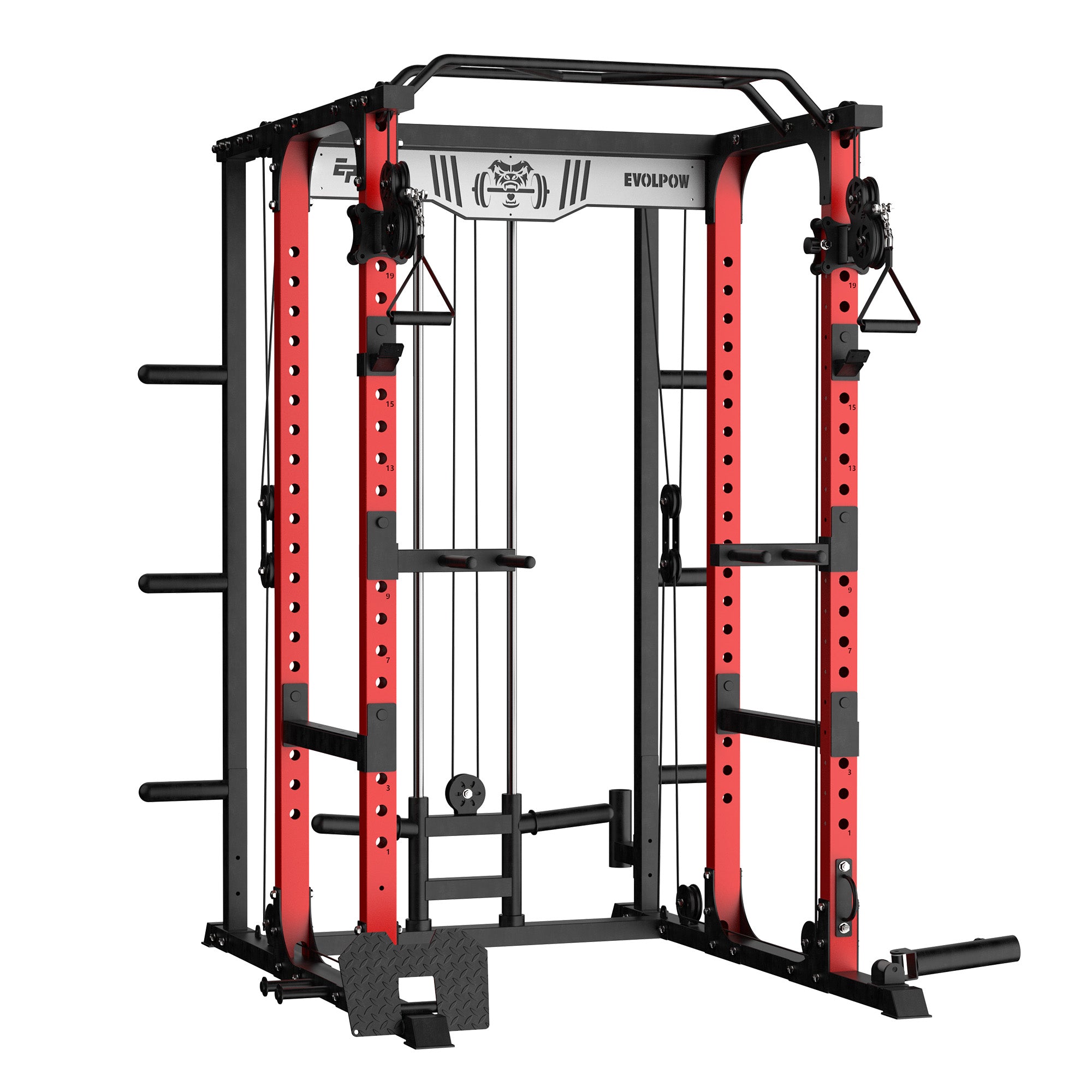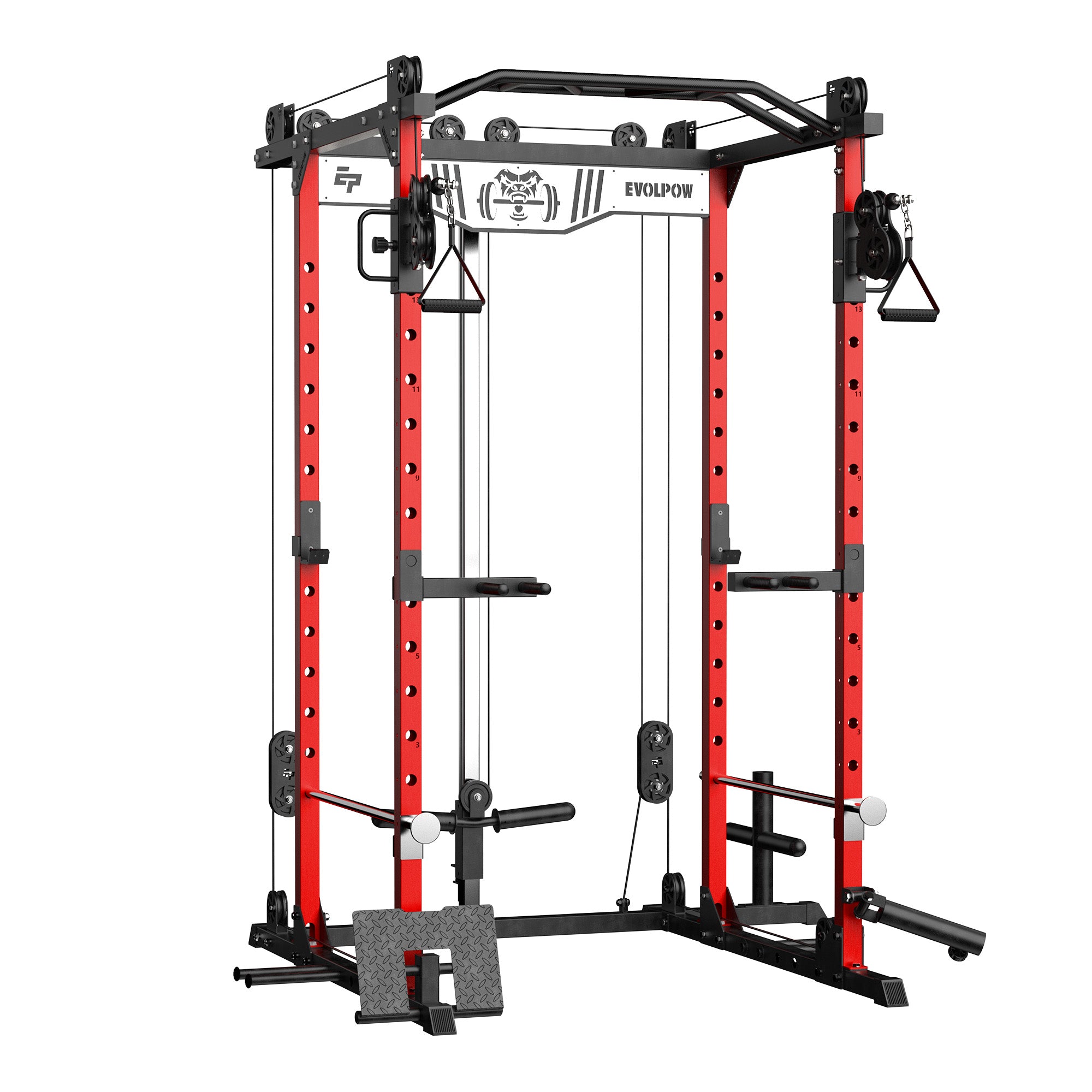On the journey to achieving a healthy physique, many people often face a dilemma: how to losing fat while gaining muscle? In fact, gaining muscle and losing fat are not mutually exclusive but can be pursued concurrently. Through a scientifically sound training and dietary plan, we can effectively build muscle while burning fat, achieving comprehensive optimization of body composition. This article will provide you with a guide on how to losing fat while gaining muscle, with a particular emphasis on the importance of strength training in this process, helping you effortlessly achieve the dual goals of health and strength.
Content
- Principles of Gaining Muscle and Losing Fat
- Methods for Losing Fat and Gaining Muscle
- Conclusion
Principles of Gaining Muscle and Losing Fat
Gaining muscle and losing fat may seem like two contradictory processes, but in fact, they can harmoniously coexist and even complement each other under scientific guidance. Understanding the principles of gaining muscle and losing fat is crucial for devising effective training and dietary plans.
Firstly, the core of gaining muscle lies in stimulating muscle growth. This is mainly achieved through strength training, which can damage muscle fibers, prompting the body to repair and thicken these fibers during rest, thus increasing muscle mass and strength. Additionally, muscles are the body's "energy consumers," and increasing muscle mass means raising the basal metabolic rate, allowing the body to burn more calories even at rest.
Secondly, the key to losing fat lies in creating a calorie deficit. That is, the calories expended must exceed the calories consumed, causing the body to utilize stored fat as an energy source. This does not mean excessively restricting food intake but rather choosing nutrient-rich, moderately calorific foods to ensure the body receives sufficient nutritional support. Additionally, moderate aerobic exercise can further increase calorie expenditure, accelerating the fat loss process.

Methods for Losing Fat and Gaining Muscle
-
Engaging in Strength Training
When we engage in strength training, our bodies undergo a series of profound transformations:
Firstly, after training, muscle fibers become significantly more sensitive to insulin. This means that the body can more efficiently utilize insulin to transport nutrients into muscle cells, promoting muscle recovery and growth.
Secondly, within muscle cells, a certain enzyme becomes exceptionally active, specifically responsible for processing glucose. This change enables the body to more effectively utilize glucose as an energy source rather than converting it into stored fat.
These two changes mean that when we consume calories, most of them are used for repairing and growing muscles rather than being stored as fat. Meanwhile, the ability of fat cells to compete for these calories decreases, directing more calories towards muscle cells, further promoting muscle building.
During strength training, the load placed on the muscles sends a clear signal to the brain: we need these muscles to cope with daily activities and challenges. Our bodies are highly intelligent systems, and if they don't sense the necessity of maintaining muscle when calorie intake is insufficient to meet energy demands, they will not hesitate to reduce muscle mass to conserve energy. After all, compared to fat, muscles are a significant energy consumer.
Therefore, strength training is crucial. When we combine strength training with a calorie deficit, the body chooses to break down fat to provide energy, thereby maintaining basic life functions and supporting muscle growth simultaneously. In this way, we can achieve muscle gain while cutting fat, sculpting a healthier, tighter physique.

-
Optimizing Dietary Arrangements
Optimizing dietary arrangements is a critical aspect of the bulking and cutting process. To maximize muscle growth and fat loss effects, we need to carefully plan our daily meals. The primary focus is to ensure an adequate daily intake of protein, evenly distributed across at least three meals a day. This helps the body continuously obtain the amino acids needed to build muscle, avoiding waste and discomfort caused by excessive protein intake at once.
In addition to protein, the intake of carbohydrates should not be overlooked. Consuming a moderate amount of carbohydrates before exercise can provide energy for the body, ensuring performance and effectiveness during exercise. Promptly replenishing protein and carbohydrates after exercise helps muscles recover quickly, reduces post-exercise fatigue, and accelerates muscle growth.
Therefore, when optimizing dietary arrangements, we should fully consider the nutritional balance of each meal, ensuring a balanced intake of protein, carbohydrates, and other essential nutrients. At the same time, based on individual exercise plans and physical conditions, adjust the types and portions of food in each meal to achieve the best bulking and cutting results.

-
Maintaining Good Sleep
One night of insufficient sleep may not significantly affect our athletic performance, but as the intensity of work or training increases throughout the day, the negative effects of single sleep deprivation also increase. Long-term or consecutive sleep deprivation, such as less than 6 hours of sleep per night, significantly affects your athletic performance, mainly manifested in neural reaction speed, muscle strength levels, muscle endurance and explosiveness, and the training volume you can withstand. Sleeping for 7-8 hours at night has a significant positive effect on improving athletic performance and sports results.

Conclusion
Through a combination of strength training, dietary adjustments, and prioritizing adequate sleep, individuals can effectively achieve their fitness goals and sculpt a healthier, more resilient physique. By implementing the methods outlined in this guide and staying committed to long-term goals, individuals can unlock their full potential and realize their desired fitness outcomes. With perseverance and determination, a harmonious balance of muscle gain and fat loss is within reach.
Q&A
Q: Is it better to build muscle if you lose fat?
A: Building muscle after losing fat can be beneficial, as it helps improve body composition and appearance. However, the best approach depends on individual goals and physical condition. It's important to consult with a healthcare professional or fitness expert for a tailored plan.
Q: Does lifting weights burn fat faster than cardio?
A: Lifting weights does not necessarily burn fat faster than cardio. Both strength training and cardio have unique benefits for fat loss. Weight lifting helps build muscle, which can increase metabolism, while cardio exercises burn calories during the workout. The best approach is a combination of both for optimal fat loss.
Q: Why am I gaining muscle but not losing fat?
A: It's possible that you're eating too much and may need to decrease your calories slightly.
References
https://tropeaka.com/blogs/the-latest/8-tips-to-build-muscle-and-lose-fat
https://www.nerdfitness.com/blog/lose-weight-and-build-muscle-or-do-one-then-the-other/
https://www.forbes.com/health/fitness/lose-fat-and-gain-muscle/
https://www.womenshealthmag.com/fitness/a30611295/how-to-lose-fat-gain-muscle/






